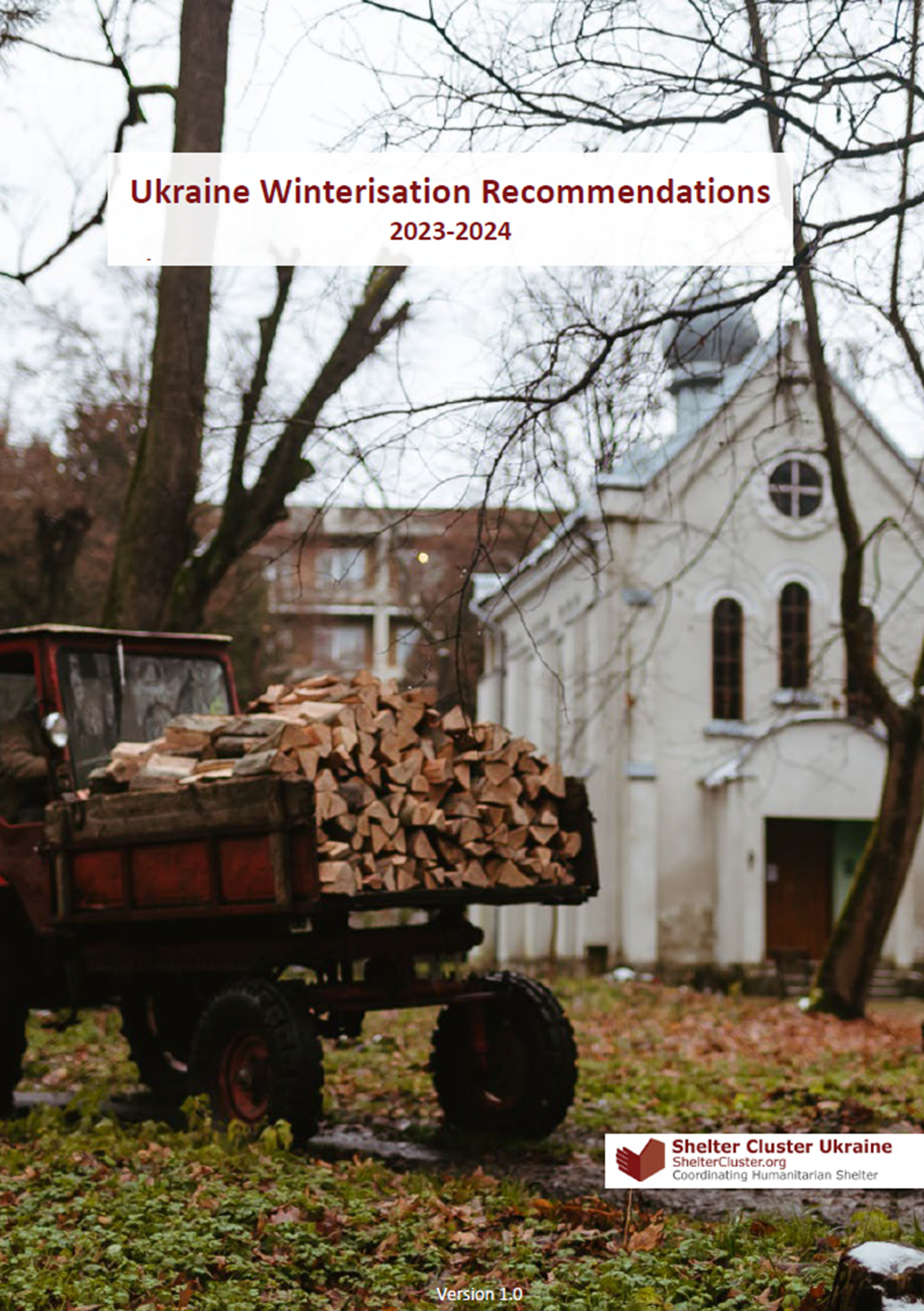Ukraine
Shelter Cluster Winterization Recommendations_2023/2024
It is estimated that since February 2022 more than 1.4 million housing units have been damaged over one-third of the damaged units are destroyed, while two-thirds are partially damaged. The upcoming winter 2023-2024 will have a special impact on various groups of people, including internally displaced persons (IDPs), those who are not displaced in conflict affected areas, returnees, and host communities. Collective sites are often ill-equipped and require regular maintenance. Additionally, IDPs are frequently housed in privately rented homes that, like most of the housing in Ukraine, may lack proper insulation. Returnees and non-displaced individuals also face similar insulation challenges in their homes, and the situation is worsened by conflict-related damages such as leaking roofs, broken windows, and damaged perimeter walls, which compromise the thermal integrity of the houses.
Furthermore, damages or a lack of maintenance have also affected the heating systems in collective sites, as well as individual houses and apartments. Every aspect of these systems, including water heaters, electricity grids, gas and hot water pipelines, internal pipes, radiators, and stoves, needs to be reactivated, repaired, or replaced. Portable heating appliances should be provided in cases where the heating system is non-existent or cannot be restored. Solid fuel and stoves should also be supplied, even in cases where access to coal or firewood markets is restricted or regular suppliers refuse to deliver. The damages to collective heating systems and electricity facilities and grid will promote the use of most solid fuels, whose cost have been increased. The destruction of the Nova Kakhovka hydroelectric plant and the restriction of use in the other hydroelectric plants upstream of the Dnipro River may have a considerable impact on energy coverage during winter months. Even with full access to functioning heating systems, many families will find it difficult to pay for heating, due to the rising cost of living, loss of income and depletion of savings during displacement.
In addition to addressing heating issues, there is a need for essential household items such as warm winter clothing, thermal underwear, blankets, and quilts to displaced individuals, returnees, and all those affected by the conflict who have lost their belongings, lack access to markets, or cannot afford to purchase essential winter items. These provisions can be made either in-kind or through cash assistance specifically for winter preparations.
The 2023-2024 Winterisation plan builds on last year's experiences, lessons learned and stakeholder feedback. These activities and the associated procurement chains will require considerable time and financial resources. The Government of Ukraine is taking the lead in preparing and implementing Winterisation initiatives, while humanitarian agencies will play a complementary role in this aspect as well.

